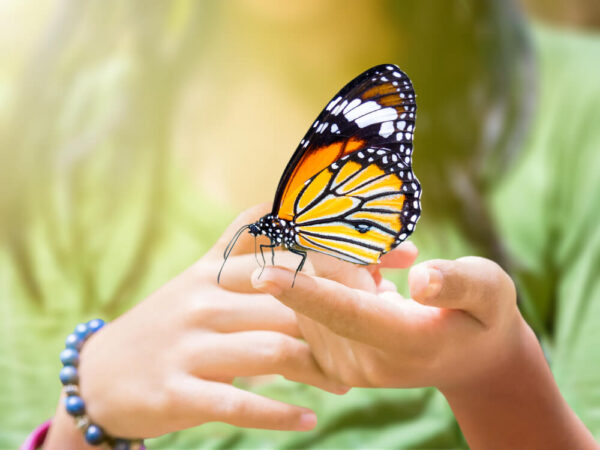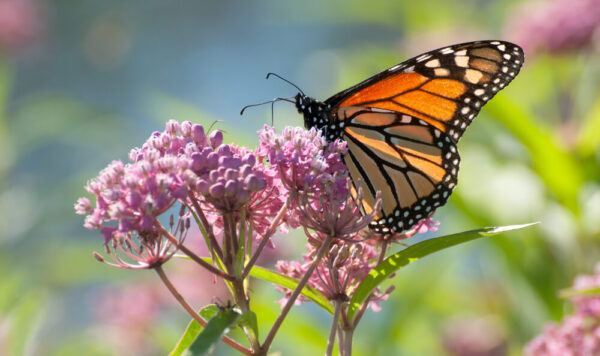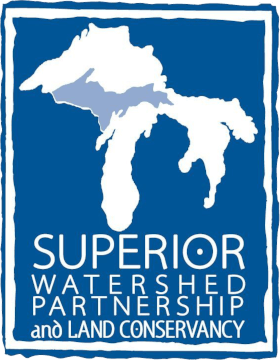
SWP Offers Volunteer Habitat Restoration Events and Free Milkweed Seeds for Endangered Monarch Butterflies
 As autumn settles over the Upper Peninsula residents and visitors can look forward to an astonishing spectacle; the mass seasonal migration of monarch butterflies over the Great Lakes region on their epic journey to the mountains of Mexico. Sadly, earlier this summer the International Union for the Conservation of Nature added the iconic butterfly to its Endangered Red List, joining thousands of other species edging closer to extinction. Michigan's monarchs are part of a subspecies famous for undertaking the longest insect migration known to science. This incredible feat also provides crucial pollination for plants across the entire continent. Unfortunately deforestation, habitat loss and increased herbicide and pesticide use have reduced the population over 90% by some estimates. The good news is that in the eastern United States, and especially the Upper Peninsula, there are glimmers of hope for the embattled monarch butterfly and other pollinators.
As autumn settles over the Upper Peninsula residents and visitors can look forward to an astonishing spectacle; the mass seasonal migration of monarch butterflies over the Great Lakes region on their epic journey to the mountains of Mexico. Sadly, earlier this summer the International Union for the Conservation of Nature added the iconic butterfly to its Endangered Red List, joining thousands of other species edging closer to extinction. Michigan's monarchs are part of a subspecies famous for undertaking the longest insect migration known to science. This incredible feat also provides crucial pollination for plants across the entire continent. Unfortunately deforestation, habitat loss and increased herbicide and pesticide use have reduced the population over 90% by some estimates. The good news is that in the eastern United States, and especially the Upper Peninsula, there are glimmers of hope for the embattled monarch butterfly and other pollinators.
Over the last decade the Superior Watershed Partnership, the Great Lakes Climate Corps (GLCC), numerous project partners and hundreds of volunteers have worked to improve pollinator habitat in all fifteen counties of the Upper Peninsula. Volunteers have included K-12 students, college students, local residents and visiting families. To date hundreds of acres have been cleared of invasive plant species, over one hundred thousand native plants (mostly milkweed) have been transplanted and the SWP has given away over a million milkweed seeds to be planted in backyards, schoolyards and at camps across the UP. It’s worth noting that common milkweed is the only plant monarchs will eat and it’s the only plant monarchs lay their eggs on!
 Now the SWP is giving away even more milkweed seeds and scheduling more monarch volunteer events for 2022 and 2023! For a limited time the SWP will be providing free packets of milkweed seeds through participating Upper Peninsula breweries, bike shops and libraries. In addition, the SWP will be offering more K-12 classroom presentations and more community education events on the importance of backyard habitat restoration, growing native plants and the important role of pollinator species.
Now the SWP is giving away even more milkweed seeds and scheduling more monarch volunteer events for 2022 and 2023! For a limited time the SWP will be providing free packets of milkweed seeds through participating Upper Peninsula breweries, bike shops and libraries. In addition, the SWP will be offering more K-12 classroom presentations and more community education events on the importance of backyard habitat restoration, growing native plants and the important role of pollinator species.
“The great thing about milkweed seeds is that they can be planted in the fall, spring or early summer. The planting process is simple. It’s a great activity for individuals, families, and kids. There is no time like the present to help the endangered monarch butterfly!” said Kathleen Henry; SWP Environmental Education Specialist. Kathleen adds, “Planting in the fall allows seeds to cold stratify naturally, helping the germination process come spring.”
Additional volunteer events will be scheduled this fall and next spring. Work alongside the Great Lakes Climate Corps on prioritized monarch habitat restoration projects at sites across the Upper Peninsula. Getting involved with habitat restoration is easy and it’s the most important work that can be done in the face of species extinction.
For more information on the SWP monarch butterfly habitat restoration initiative please contact Kathleen Henry, SWP Environmental Education Specialist, at:
